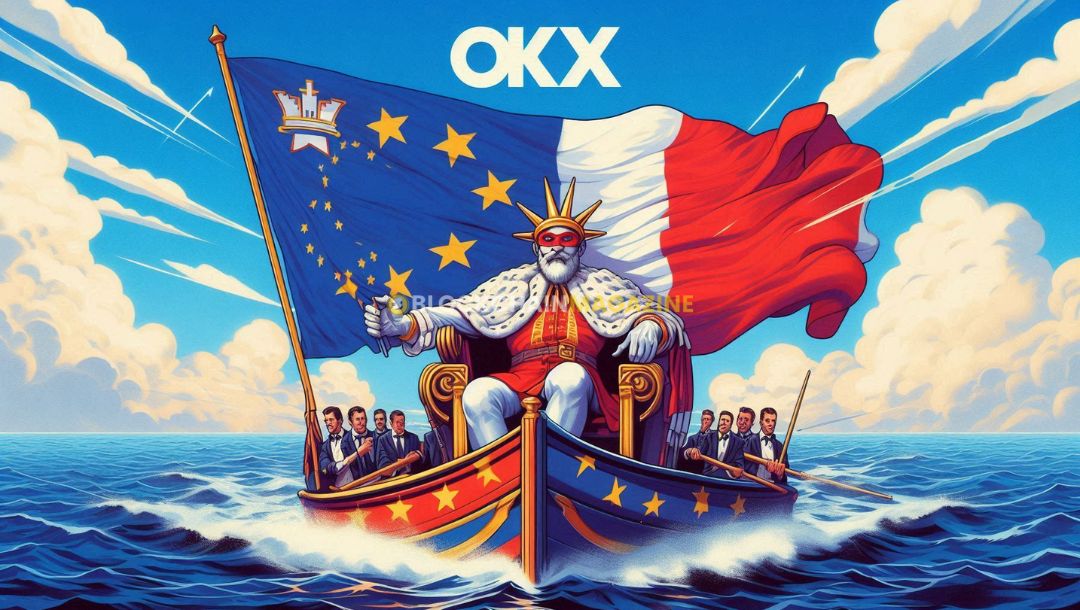OKX, the world’s second-largest cryptocurrency exchange, has decided to establish its European headquarters on the Mediterranean island of Malta to comply with the newly instituted Markets in Crypto-Assets (MiCA) regulatory framework, according to sources familiar with the matter.
This strategic pivot marks a departure from OKX’s earlier announcement in May last year, where France was earmarked as its preferred European Union hub. Notably, OKX’s French subsidiary has been registered with the Autorité des marchés financiers (AMF) since December.
“Compliance in Malta is significantly more permissive, a reputation that’s less desirable when operating within the EU crypto landscape,” commented an individual with direct insight into OKX’s European regulatory strategies.
OKX has refrained from commenting on its Malta decision.
Cryptocurrency firms have been striving to register with one of the European Union’s 27 member states in preparation for the forthcoming MiCA regulations. These rules necessitate that firms obtain a Crypto Asset Service Provider (CASP) license from an EU nation to function across the entire bloc.
To secure a CASP license, firms must first establish a physical presence in the chosen nation, conduct business activities there, and complete the registration process. While MiCA’s stablecoin regulations are already effective, the remainder of the regulatory framework is slated to be implemented by December.
Read more: Bybit Clinched Crypto Exchange of the Year at NBX, The Blockchain Festival of Europe
Malta, known for hosting numerous gaming companies and investment firms, has progressively embraced the cryptocurrency sector in recent years. In late 2023, the Malta Financial Services Authority (MFSA) revised its regulations for crypto companies to align with the impending MiCA requirements.
OKX is currently looking to fill several prominent roles in Malta, including head of compliance, operations lead, and head of internal audit.
Earlier this year, OKX settled a “goodwill” agreement amounting to 304,000 euros ($329,000) with the Maltese financial regulator for certain regulatory lapses.

 Bitcoin
Bitcoin  Ethereum
Ethereum  Tether
Tether  XRP
XRP  Solana
Solana  Dogecoin
Dogecoin  USDC
USDC  Lido Staked Ether
Lido Staked Ether  Cardano
Cardano  TRON
TRON  Avalanche
Avalanche  Toncoin
Toncoin  Wrapped stETH
Wrapped stETH  Chainlink
Chainlink  Shiba Inu
Shiba Inu  Wrapped Bitcoin
Wrapped Bitcoin  Sui
Sui  Stellar
Stellar  Polkadot
Polkadot  Hedera
Hedera  WETH
WETH  Hyperliquid
Hyperliquid  Bitcoin Cash
Bitcoin Cash  LEO Token
LEO Token  Uniswap
Uniswap  Pepe
Pepe  Litecoin
Litecoin  Wrapped eETH
Wrapped eETH  NEAR Protocol
NEAR Protocol  Ethena USDe
Ethena USDe  USDS
USDS  Internet Computer
Internet Computer  Aave
Aave  Aptos
Aptos  Cronos
Cronos  POL (ex-MATIC)
POL (ex-MATIC)  Mantle
Mantle  Ethereum Classic
Ethereum Classic  Monero
Monero  Render
Render  WhiteBIT Coin
WhiteBIT Coin  MANTRA
MANTRA  Virtuals Protocol
Virtuals Protocol  Dai
Dai  Bittensor
Bittensor  Artificial Superintelligence Alliance
Artificial Superintelligence Alliance  Arbitrum
Arbitrum 



